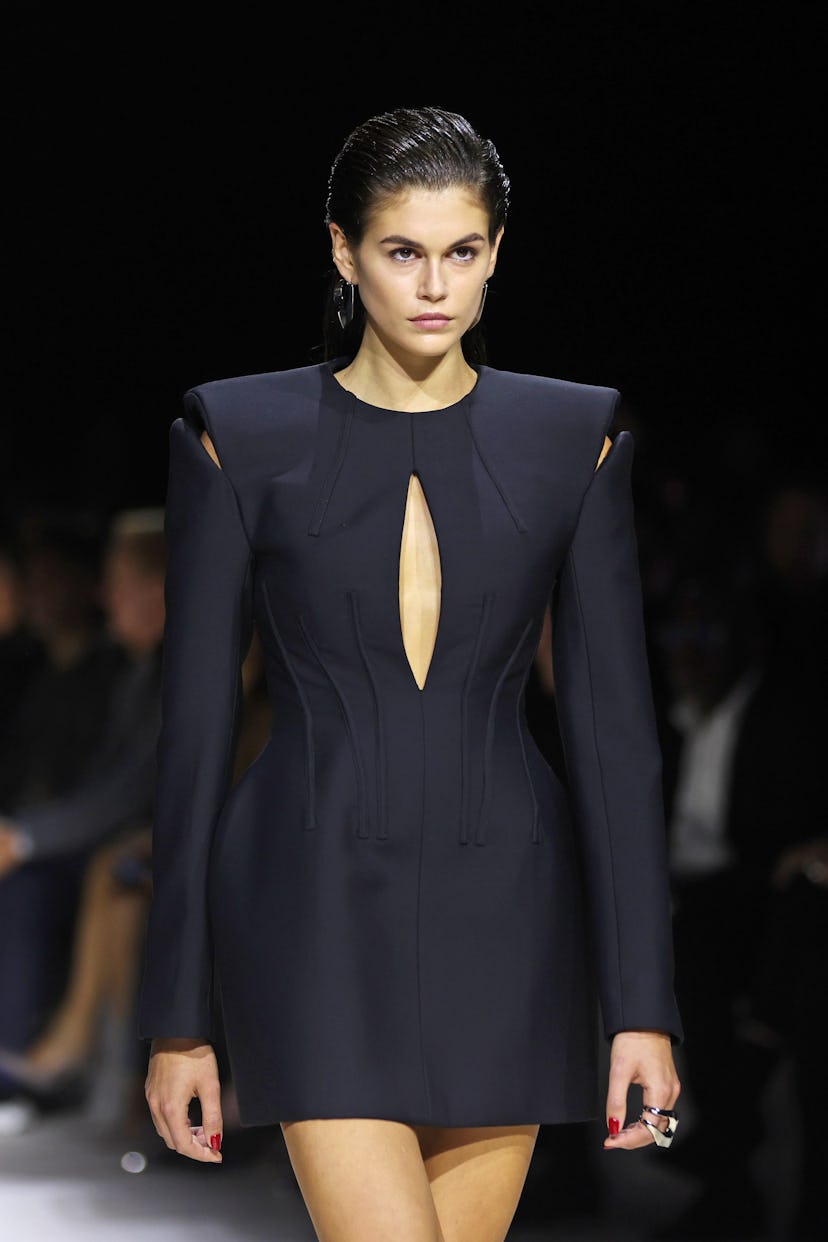At Alexander McQueen, Sarah Burton Worships the Female Form

Alexander McQueen has always been an emotional brand, shrouded in the mythical tension of the romantic and the macabre that was the product of Lee Alexander McQueen’s incredible imagination and virtuosic design skills. Those lucky enough to have attended any of his runway shows know they witnessed something truly remarkable—once in a generation, maybe even once in a lifetime vision. Sarah Burton, who joined McQueen out of Central Saint Martins in 1997 and quickly became his head of womenswear, has been the faithful steward of the house since his suicide in 2010. A private designer famous for her devotion to craft and absolute disinterest in fame, Burton’s tenure has been defined by her dedication to keeping McQueen’s magic coursing through the collection’s veins while deftly translating it with the hand and eye of a female designer.
On September 30 in Paris, emotions were high as Burton showed her final collection for Alexander McQueen after 26 years at the house. Earlier this month, Kering announced that it would be parting ways with the designer. Burton’s successor has not yet been announced. Her spring 2024 collection was titled Anatomy II. Show notes relayed a statement from Burton: “This collection is inspired by female anatomy, Queen Elizabeth I, the blood red rose, and Magdalena Abakanowicz, a transgressive and powerfully creative artist who refused to ever compromise her vision. This show is dedicated to the memory Lee Alexander McQueen, whose wish was always to empower women, and to the passion, talent, and loyalty of my team.”
There was no need to read between the lines. The show brought Burton’s point into sharp relief. The room was hung with four of Abakanowicz’s massive textile sculptures—on loan from various museum collections—dense, abstract, and mesmerizing in their form, color, and texture. The clothes radiated womanly abundance: strong, confident, sensual, sexual, and above all, beautiful. Kaia Gerber opened in a sharply tailored black wool dress sliced at the shoulders, slashed down the bodice, and laced up the spine in blood-red cording. Naomi Campbell closed in an “open heart” corset molded in cone-like armor at the breasts and sculpted over the hips. It was made from silver silk tulle and with all-over glass bugle bead embroidery and was worn over a slinky skirt made of draped bugle bead fringe.
In between Gerber and Campbell were models spanning age, size, shape, and race in looks that telegraphed power and modernity. Even the delicate moments exuded desire and dominance rather than fragility. Burton exalted the female form with pin-sharp tailored jackets that were cut out to reveal sculpted bras or nipped at the waist with corsetry. A slipdress was made from double-layered black chiffon with an open back and a photographic print of a red rose by David Sims. There were anatomically broidered bodysuits, gowns abloom in anatomical petals, and dresses embroidered with anatomical details reworked from original illustrations by Amé Bourdon from the National Library of Medicine. Burton’s women, their bodies, their capabilities, were to be worshipped. As a final statement of her oeuvre at McQueen, the collection commanded the room and delivered on the moment. Burton took her bow to a standing ovation. This woman’s work is remarkable and we will be watching when it continues.